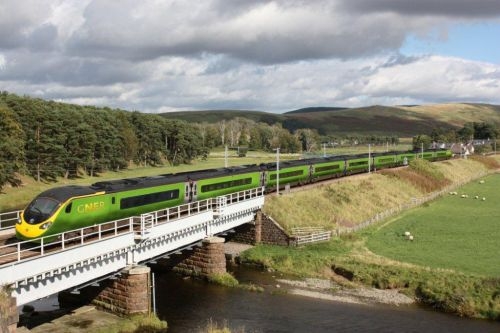Alliance says it will start consultation immediately with Network Rail and the other ECML train operators. Their comments together with Alliance's responses will then form part of its submission for paths to the Office of Rail Regulation at the end of January. If Alliance is granted paths in time the new service could start in December 2016.
Alliance says it will need 12 nine-car trains to operate 14 services per day in each direction. It will either purchase the trains directly from Alstom or acquire them through a rolling stock leasing company. The Pendolinos would be a TSI-compliant version of the trains Alstom has supplied to Virgin Trains for the West Coast Main Line. The introduction of tilting trains on the ECML would also require investment in track and lineside equipment.
The trains will only make one intermediate stop in Newcastle to achieve a London – Edinburgh journey time of 3h 43min, compared with a current fastest time by East Coast of four hours, while the London – Newcastle journey time would be cut from 2h 36min to 2h 29min. Alliance says by running the trains at their maximum speed of 225km/h, rather than 200km/h as currently permitted, it would be possible to reduce the London – Edinburgh journey time to 3h 30min, but this would require upgrading the signalling, the first phase of which is planned for completion in 2018.
"The significant reduction in journey times will attract many airline passengers who will now have faster city-centre to city-centre journeys," says Mr Ian Yeowart, managing director of Alliance Rail Holdings, which is part of Arriva Trains UK, which in turn is owned by German Rail (DB).
There are already two other open-access operators on the ECML: Grand Central, which is also owned by Arriva, operates from London to Bradford and Sunderland, while First Hull Trains provides a service between London and Hull.

